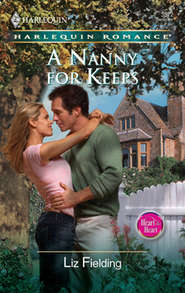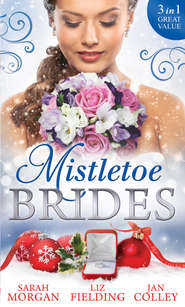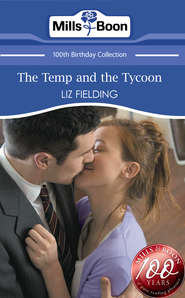По всем вопросам обращайтесь на: info@litportal.ru
(©) 2003-2025.
✖
Chosen As The Sheikh's Wife
Автор
Год написания книги
2018
Настройки чтения
Размер шрифта
Высота строк
Поля
That it was old was not in doubt. The handle had the patina of hard use, and inset in the top was a large, smoothly polished red stone the size of a pigeon’s egg. The sheath wasn’t straight but sharply curved and adorned with fancy silver and gold–coloured filigree work into which were set three similar tear-shaped red stones, decreasing in size as they reached the curved point and looking for all the world as if the stone on the handle was bleeding along its length.
The man said nothing for so long that Violet said, ‘If I’d seen it on a market stall I’d have sworn it was a pan to mime prop. Something the genie might wear in Aladdin.’ The crowd, obligingly, laughed. ‘All glass beads and plastic handle,’ she added.
Then, as he eased the knife out of the sheath and the lights glinted off the blade, the laughter died.
‘It’s not a theatrical prop,’ he said, unnecessarily.
‘No.’ And belatedly Violet wondered exactly how many laws she’d broken simply by carrying the thing in public.
‘You found it under the floorboards, you said?’ he prompted, with a keen, assessing glance. ‘And which floorboards would they be?’
‘My floorboards,’ she replied a touch defensively, although now that the equity release people had done their sums the floorboards—along with most of the structure—were apparently theirs.
‘I’m the fourth generation of my family to live there,’ she added. And the last.
‘Then it’s likely that someone in your family hid it?’
‘Unless burglars have started breaking in and leaving loot instead of taking it,’ she agreed, and raised another laugh from the people crowded round to listen to what he had to say. Maybe she should consider a career in stand-up…
‘Indeed,’ he agreed, his smile as fake as his tan. It was his job to make the humorous remarks. ‘Maybe we can come back to that.’ Then, turning back to the knife, ‘The Arab world has always been famous for its weapons and this is a khanjar, mostly worn now as a ceremonial piece in the same way as swords are worn with dress uniforms.’
He talked about the blade, about how the sharply curved scabbard was made, the skills being passed on from one generation of crafts men to the next. He knew his stuff and the crowd around them was quiet now, intent. They knew that when he took this amount of time it was because he’d found some thing a bit special.
‘This knife is exceptional,’ he continued. ‘Not only is the blade of the very highest quality, but the handle is made from rare, much-prized rhino horn.’
‘Eeeuw…’ Violet sat back, instinctively distancing herself from it.
‘It’s more than a hundred years old,’ he said reassuringly.
‘Does that make a difference?’ she asked. ‘The rhino still died just to furnish some man with a handle for his knife.’
‘The transference of power had a potent appeal. It was a different world…’
‘Not that different.’
‘No.’ Then, turning to a safer subject, he went on, ‘The filigree work is fine gold and silver, and the use of rubies—’
‘Rubies!’ Violet ex claimed, for get ting all about the poor rhino who’d given up his horn just so that some dumb man would feel invincible when he wielded this blade. Forgetting everything in her shock. ‘They can’t possibly be rubies!’
This time his smile was genuine. It was finds like this, reactions like hers, that made the programme compulsive viewing.
‘I mean, they’re huge,’ she said. Then, ‘I thought they were glass.’ And raised another laugh. This time for her foolishness. Everyone was an expert…
‘They might well have been,’ he agreed. ‘All kinds of decoration can and have been used on this kind of knife, but these stones are the real thing. Cabochon rubies—that is they have been polished rather than cut.’
Violet, aware that some thing more was expected, could only manage a slightly croaky, ‘Oh…’
Rubies…
‘What we have here is the kind of weapon that would have been owned and worn by a chief. A sheikh,’ he elaborated. ‘Maybe even a sultan. It needs cleaning, of course, but even in this state I can’t remember when I’ve seen anything quite so fine.’
It was rare for anything to reduce Violet to silence, but he had managed it.
‘The really interesting question is how it came to be hidden beneath your floorboards.’
Violet was well aware what it must look like. What everyone must be thinking. That it had been stolen and, too hot to fence, had been hidden away and eventually for got ten about. But her family had enough of a history without adding larceny to the list, so she said, ‘I suppose it could have some thing to do with the family legend.’
‘Family legend?’
‘The one about my great-great-grand mother being an Arabian princess who sewed her jewels into her clothes,’ she said, ‘and ran away from her husband with my great-great-grandfather.’
It was, gratifyingly, Mr Smooth’s turn to be reduced to silence—if only momentarily.
‘An Arabian princess?’ he repeated, with a touch of uncertainty. She could see from his expression that he wasn’t sure whether she was pulling his leg.
‘With blue eyes,’ she added, beginning to see the possibilities for entertainment herself. ‘I’d always assumed it was just one of those tales that had grown in the telling.’ She shrugged, leaving him to make up his own mind.
‘Most stories have some element of truth in them,’ he suggested. ‘Was he a soldier? Your great-great-grandfather?’
‘He was in the army. He was a medic. Stretcher-bearer,’ she explained.
‘Quite.’ Then, ‘It’s more likely that he brought this back from the Middle East as a trophy,’ he said, apparently discounting the Arabian princess theory as pure fantasy. ‘Possibly from Turkey. This kind of elaborate decoration was favoured in the Ottoman dynasty.’
‘Actually,’ she said, refusing to allow him to dismiss her story in quite so casual a manner, ‘it was the princess and the jewels I always assumed were the tall stories.’ Her great-great-grand father had braved artillery fire to carry wounded soldiers to safety, had a Military Medal to attest to his heroism, and she wasn’t having him publicly branded a thief. ‘Great-Great-Grandma Fatima was real enough. I have a photograph of her.’
There was a stiffly posed sepia-tinted photograph of a tall, exotically handsome woman, standing behind her seated husband, in the “family gallery” on the kitchen dresser.
‘And a letter. In Arabic…’
‘Well…’ For a moment he appeared lost for words—twice in one day had to be a record. ‘Well, you have a real story. And a rich treasure. Knives like these are very much in demand, and if you were to put it up for auction in a specialist sale…’
He mentioned some ridiculous sum of money, and all around her she heard gasps. And she was the one left struggling for words.
It was, Violet thought, numbly, a bit like a fairy tale.
She’d been in her late grandmother’s bedroom, emptying her wardrobe, sorting out what was good enough to send to the charity shop, when she’d stepped back and gone through a floor board that had creaked for as long as she could remember. And then, having pulled out her foot, she’d seen the carefully wrapped black silk bundle.
Buried treasure.
She was still in shock when the photographer from the local newspaper said, ‘Smile!’ and took her photograph.
‘I’m sorry to disturb you, Fayad,’ the ambassador said, but the press attaché has just received a call from the news desk of the London Chronicle about a story they’re running tomorrow. It’s some thing I thought you might want to know about.’
Sheikh Fayad al Kuwani, grandson to the ruler of Ras al Kawi, looked up from his laptop. His cousin would not have disturbed him unless it was some thing important.
‘What scandal has my father visited upon us now?’ he asked, sitting back, prepared for the worst.
‘No… No, it’s nothing like that, insh’Allah,’ Hamad was quick to reassure him. ‘It seems that a young woman took a spectacular khanjar for expert valuation to some television programme that was being recorded this afternoon.’











